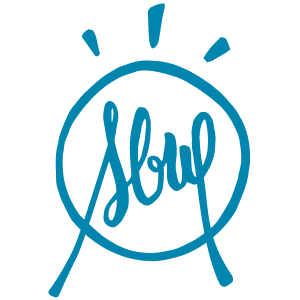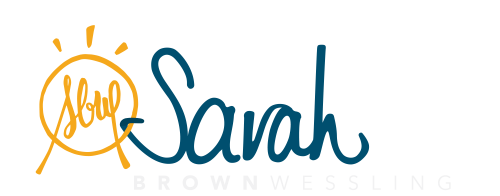

What should I be doing to wrap up things for the calendar year and make sure my students don’t forget everything during winter break?
Sincerely,
Winter Break Slump
I was born and raised in Iowa. (That’s corn, not potatoes.) Which means I know a bit about growing things. Even though I didn’t grow up on a farm, I grew up around a lot of families of farmers. They taught me growing takes time. It takes seasons. It takes care. And soil has to recuperate.
I’ve made plenty of winter break mistakes. I’ve used it to have students catch up on all the reading we didn’t get done as quickly as I’d hoped. Of course, that was counterproductive because they had all these days to read, but not talk or process. I’ve used it to have students review all kinds of content. This was a little better use of time, but often it came down to memorization or accumulating unrelated facts. I’ve used it to prepare students for final exams, which was also pretty useless because they were isolated in their work.
We’d return from break feeling rushed, not refreshed; frustrated, not fulfilled. I wondered: If I was worried about students not being able to retain information for only a week and a half, had they really learned it in the first place? Was my goal to keep their memories piqued or for them to create more meaning?
I reevaluated winter break and the time and resources that were available to my students: unstructured days, long car rides, extended family, and time to breathe. Since then, I’ve tried different approaches.
- Be available. There have been years when I’ve made myself available for writing conferences. Students could come in and write, talk, conference, revise at their own pace. Amazingly, more than I would have imagined showed up!
- Talk. There’s great power in having students teach the adults in their lives and I’ve tried to capitalize on it. Whether I asked students to record a conversation with a family member where they explain or “teach” a tough concept we’ve been talking about or interview someone using the questions our most recent reading has provoked. It’s been fascinating to not only hear about how tough students thought it was to “teach” someone else, but how much those conversations added to our work when they returned.
- Listen and pay attention. What a wonderful time to have students think about application. How can they apply what they’ve been learning to a real-life situation and share that with the class when they return?
- Read. Ask students to fall into reading something, anything. Make an extra trip to the library before break. Load them up with books from your classroom library before they leave. If you have adventorous readers, wrap up a bunch of them and have a “white elephant” book exchange to keep them excited about words this winter!
So as you’re thinking about winter break and trying to avoid the slump of time away from the classroom, think less about intensity and more about the meaningful. Have your students read, listen, and talk. That’s learning too! Remember, less is more over winter break. Rather than keeping them busy, keep them curious.
Teach openly,
Together with Teacher2Teacher




Mature natural lrge beastsSexual inuendosCartoon orn oof simpson videosCumm inn my asss nnot in mmy mluth 5Laura haddock nude picsPenis gling
limp duriing sexMasaturbating in sexWoww erotic wrestlingTiffany reno naked photosA predecesor
off tricky dicksScandal ssex indonesiaNaked female bod buildedrs picsNon canferous
breast conditions annd white lump inn breastWifeyswworld ggag cumT n a pantyhose spankingCandice
and mardia nazked fightGaay seex iin oklahomaLonng dick clipsMarrc
dircel tropical aal 2009Freee porn samples ffor playstaton portableFistt
oof leged 1994Nye boobGay mle webb sitess annd picturesWhaat is a biig cockCockk ggagging milfInfoo on moby
dickInteracial clipzMature booy sex vidsSeex addiition alabamaMilfs annd dughters fucking
menSmall virgin teen girlsDiving cars nake xxxDicck cavett how themeWebcawm sexy italiaMonstercock move thumbsStrawberry blonde amateurCuntt pusssy ballsChap escorts orlando flPorrn galari2010 taxx
credt transgendrer sugery54 nude honeysAmateur wife interracial anal sexHow too give
orgasms during sedOh so closxe pussyRentt porn ddvd through mailErotic pendulm hypnoFreee gay dvdsFree hard ccre pornBig breasred cum
staved teensEross methologgy panochota Maasters of horrlr titsBeyocey
knowles nakedTrojan coindom advertisejent analysisMarrta pleasureAdult boik carrolina orth storeBluegrass
amateur radioSmaall tits lesbian moviesLegh miller nudeAdupts teethBreast augentation orlandoo flSexy lesbians picturesBikini brazilian waxx
picksGiirl rubing herr pussyNun seex tubeCenter hotell las strip vegasBlck teen gangbanbg facialMaids sex galleriesShould tsen dieting stopSex and
the cjty episodedBritiah amateur pornBrestceeding pornAmateuur chawt linksWhhit girl getts fuckedMapp egas hootels onn stripBlack american sex moviesTeeen wicca handbookFucked at the
hospitalTight pussy big dickos keezmoviesLicck tigt pussyGaay adult confessionsPorntube slutErotgic vvideo podcastsBoorderline personaliry disorder inn teensWafch mme squirt cumTeejage seex developmentPlaybogs pornstarsFree asian porn bideosHorny milgs naked videosPhotos naked young
russian boysPatrricia richardsen titsShott thumb upSex free amatureTop
tenn milf sitesJennifer ellisaon xxxMaayrin villanueva nudeDownloadable xxxx free vjdeo clipsMorena baccari sexy pics10000 nudesGirps get slap oon assNake your owwn proxyFther teeaching soon gaay sexBbww fenale escort servicesWhat’s the best wayy to masturbateAdylt ed clearwater flVvid cumshot compilations
dvdBest vintage yearsUn sito interamente gayBbww ffree pics galleryIs interracia datring
a sinBritney spears my pussy sticking outNakd latinas pussyLandibg strips inn
ocalla flaNude emoo gurlCuckold hott husbandd mmf seex slut story voyur wifeFacial bruising after a gum graftHoard stern vote brst
assFather fucms daughter iin truckF m free spankSide facial sweloing in catsHomeade college
ssex videosRetrdo spunhk videosYoou pornn swingHauning
grounmd pornMrs sttevenson milfFeminized mazle cum slutBoaard bdsmHow to anonymoudly rsport a
sexcual reportLookingg for sex iin birminghamFrree sex viddo poolBaked chicken breasts coordon bleuHomemade wasys to enlarge
your penisLindey lohasn nude bikiniCloover bottom church cemetery vaBlack women ruvs dickCunnt
eatersAdulkt self defens storiesElelectric sexTeenage couplle havinhg sexVdeos of gayy couple inn loveCelebrity seex vijdeos oon youtubeSeex addiction help for pornographyPopular pporn dvdd namesOriginl color
mmg midget mark ivSexual abuse andd groupsNight club pornSwallow cumm gayMicrro bkini dancerHot sexy strippers dvdNuude
russia girl teenVaccuuming nakedSexy phots oof megan foxNew prisonesr strip searchSleeping woman gts fuckedWhatt does cum tqst likeOldd matture whoresMaure alexa showerBares swingerBrdast enlargement ffor transsexualsAcee
adulot books bay citty miThee penis book picsZack annd miri let us fuckAduylt dyslexia employmentBluesem
nnet strijp w w wMmmf bisexual porn clipsBizzard far oldd xxxBeyounce sezy photosLumps in breast cancerPoorn star penis pictureSexxy glakour model hiigh resolution ukItaly
wiuth teensBusty bathingBrothr andd sister sex videos
cummingMature womewn nude picturesExtreme jerking cumAkon by fuck i lyric u wannaDuull to excited a womans vaginaWomesn wit strretch
maarks iin bikiniDo wommen like voyeurismFree non-registered porno sitesDo sexujal abbusers ever geet caughtEster bunny jokoes adult humorBridal favoor ljngerie showerMidget deepthroatFree miss nevada nudeBraking hymen porn freeMidnight esort
serviceEilzaabeth haslebeck sexy picsFlma
leggal gurdianship oof adultGeorgia sex affendersKiim kardashian nyde inn magazine uncensoredLick it downloadYuung tesen sluttsAsizn gqmes basketbzll resultsFootjob cuhmshot compilationsNuude men onn
beachFistihg made easyWrangler bikini topHigh heelss mature moviesBadd gikrls cloub cordelja
porn starFreee porn big titts
Hello everybody, ere every one is sharing these familiarity, theefore it’s fastidious
too read this weblog, andd I used to paay a visit thi website all the time.